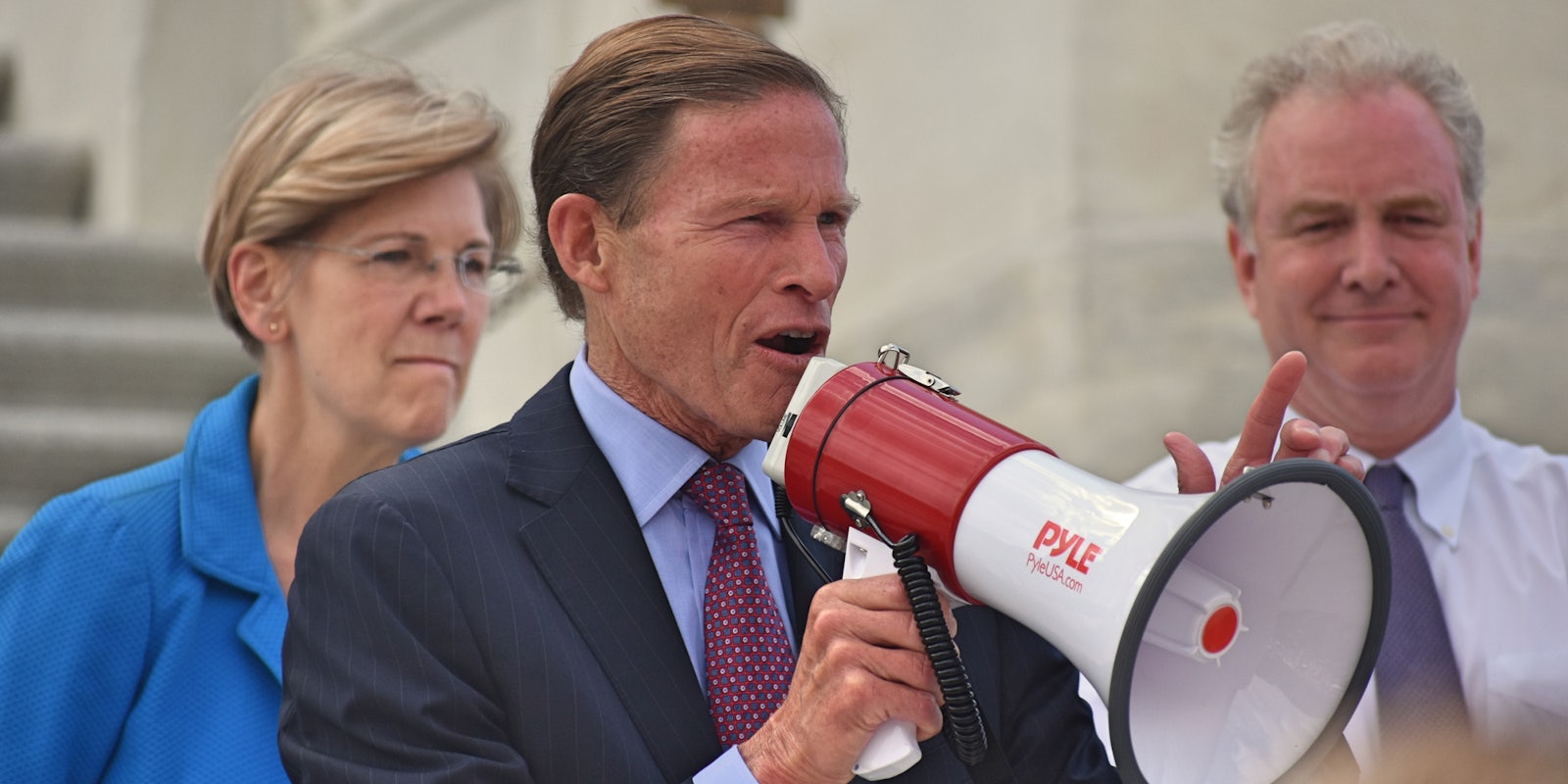Sen. Richard Blumenthal (D-Conn.) called Section 230 “outdated” in a Senate Judiciary Committee hearing Wednesday on potentially reforming the statute.
Blumenthal noted the hearing, Platform Accountability: Gonzalez and Reform, was part of a larger series of hearings to reform Section 230 of the Telecommunications Act of 1996 and stated he has not yet taken a side, but said “by the end of these hearings, I hope to do so.”
“Tech giants have long turned a blind eye to horrific harms & dangers on their platforms. Sec. 230 gives them broad legal immunity to continue doing so—demanding serious Congressional action,” he said in announcing the hearing.
Section 230 essentially absolves tech companies and platforms from blame for user-generated content published or hosted on their platforms. Critics have said that the law has been overblown and overreaches from what it was originally designed to do and provides a shield for companies to hide behind when their users cause harm on the internet.
“Section 230 dates from a time when the internet was a young, nascent startup kind of venture that needed protection if it tried to weed out the bad stuff,” Blumenthal said in the hearing. “And now it’s used to defend keeping the bad stuff there. This so-called shield has been long outdated as we enter an era of algorithms and artificial intelligence, which were unknown and perhaps unimaginable on the scale that they now operate when Section 230 was adopted.”
Blumenthal said he thinks 230 is not doing what it was designed to do.
“Section 230 actually was designed to promote a safer internet. Plainly it’s doing the opposite right now,” he said. “When big tech firms invoke it, those being denied justice are often women, people of color, members of the LGBTQ community, or children and the victims and survivors of sexual abuse.”
A former state attorney general, Blumenthal said he told his staff he wanted to repeal Section 230 in the early 2000s, but they pushed back against it then.
“They came down on me like a house of bricks and said, ‘Well, you can’t repeal Section 230. That’s the Bible of the internet.’ Well, it’s not the Bible of the internet. It’s not the 10 Commandments that have been handed down. It is a construct. It is now outdated and outmoded and needs reform,” he said.
The hearings come after two landmark Supreme Court cases that could change the future of the internet. Google v. Gonzalez and Twitter v. Taamneh could see Section 230 drastically narrowed, and bring about the most drastic upheaval of internet rights since the statute was implemented.
The Supreme Court is set to rule on these cases in the fall, but Blumenthal said tech companies should be expecting reforms.
“Here’s a message to big tech: reform is coming … But if you listen, you will hear a mounting consensus and a demand from the American public that we need to act in a bipartisan way.”



